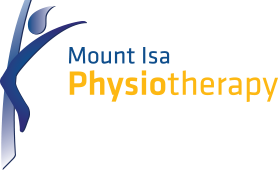Vertigo
Dizzy spells are associated with vertigo and are a common condition noted in people. Vertigo can be termed as a subdivision of dizziness where a person experiences altered/inappropriate perception of motion. Even though it may seem like a threateningly out-of-control situation, it affects as much as 30% of the population and can be treated with physiotherapy.
Common symptoms of Vertigo
Vertigo and conditions of dizziness are both synonymous with each other.
Vertigo commonly refers to a whirling and spinning sensation due to disturbed balance. It is a result of an imbalance in the vestibular system. Lightheaded feeling, dizziness, a feeling of fainting and unsteadiness are feelings synonymous with Vertigo.
When there is a disorder in the vestibular system i.e. disorders in the structures of the inner ear, the vestibular nerve, brainstem, and cerebellum, the condition of Vertigo is brought to life.
What is the Vestibular system?
The Vestibular system is responsible for integrating sensory stimuli and movement. It acts like a focus puller that keeps objects clearly in the frame of vision in tandem with the movement of the body.
When the head moves, signals are sent to the labyrinth, an apparatus in the inner ear made up of semicircular canals bogged by fluid. The labyrinth then transmits the information on the movement to the vestibular nerve, which carries the information to the brainstem and cerebellum. As these are the areas in the brain that control balance, posture, and motor coordination, the effect is huge.
Common causes of Vertigo
When it comes to dizziness, the common cause is Benign Paroxysmal Positional Vertigo (BPPV). Other causes include inflammation in the inner ear, Meniere’s disease, neck joint dysfunction, vestibular neuritis, vestibular migraine, and acoustic neuroma.
Vertigo can be a symptom of even more serious neurological problems like a stroke or brain hemorrhage. It is unwise to leave the condition untreated.
Common conditions related to Vertigo & Dizziness
• BPPV – Benign Paroxysmal Positional Vertigo
• Migraine
• Muscle Strain/Pain
• Neck Headache
• Spondylosis (Spine Arthritis)
Treatment for Vertigo
Not many people know that physiotherapy can help to treat vertigo. This method of treatment is called vestibular physiotherapy. The effects of vertigo can be caused by disorders in the inner ear, called your vestibular system, which physiotherapy has proven extremely effective in treating.
Methods of vestibular physiotherapy are designed to stimulate and challenge the symptoms of vertigo and help the body become resistant to dizziness. They are designed to help people build confidence walking and improve their balance. Some methods of vestibular physiotherapy involve:
• Eye-head coordination exercises
• Balance and gait exercises
• Repositioning techniques
• Habituation exercises
Mount Isa Physiotherapy has the best treatment, techniques and expert crew under its belt to help people suffering from vertigo and dizziness. Contact us to book an appointment or book one online.

